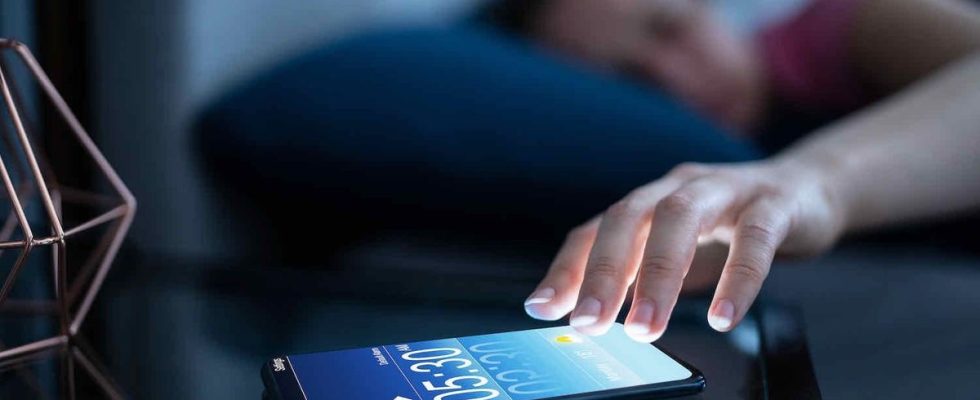Published on
Updated
Reading 2 min.
Are you used to waking up by your phone’s alarm? Bad idea. According to researchers, this habit could increase your cardiovascular risks. Explanations.
To get to the office on time, what could be more practical than a digital alarm, programmed from your cell phone? If the vast majority of French people wake up this way today – the mechanical alarm clock has long been relegated to the attic – this reflex is not without consequences.
Increased risk of cardiovascular events
According to a new study from the University of Virginia School of Nursing, digital alarm clock – induced by the phone – could indeed significantly increase your blood pressure, putting you at increased risk of cardiovascular events.
This phenomenon could be explained rather easily, according to the researchers: this “forced” awakening would suddenly take the body out of its natural sleep cycle, which would create a “peak” in morning blood pressure and a sudden increase in heart rate.
Over time, this morning surge in blood pressure contributes to the development of cardiovascular diseases (strokes, heart attacks, etc.).
Phone alarm causes increased tension
The team of scientists supported these findings by observing the sleep and wakefulness of 32 participants over two days – who had to wear smart watches and blood pressure cuffs.
If the first night, they were able to wake up naturally, from the second night, the scientists asked them to set an alarm, programmed after only five hours of sleep.
Result ? The participants who were “woken up by force” by this alarm presented a much higher morning increase in blood pressure than the others (+74%).
The proof, according to the researchers of a certain link “between sleep duration, forced awakenings and morning blood pressure surge“.
Another finding of the study: excess morning blood pressure seemed to activate the sympathetic nervous system of the participants, causing increased pressure on the heart. However, this was responsible for various inconveniences: fatigue, shortness of breath, anxiety, stiff neck and, sometimes, nosebleeds and headaches.
Researchers also noted that individuals who sleep little and/or who have cardiovascular disease would be more affected by the adverse effects of a morning blood pressure surge.
Promising first results, which nevertheless deserve to be validated on a larger panel of candidates.

